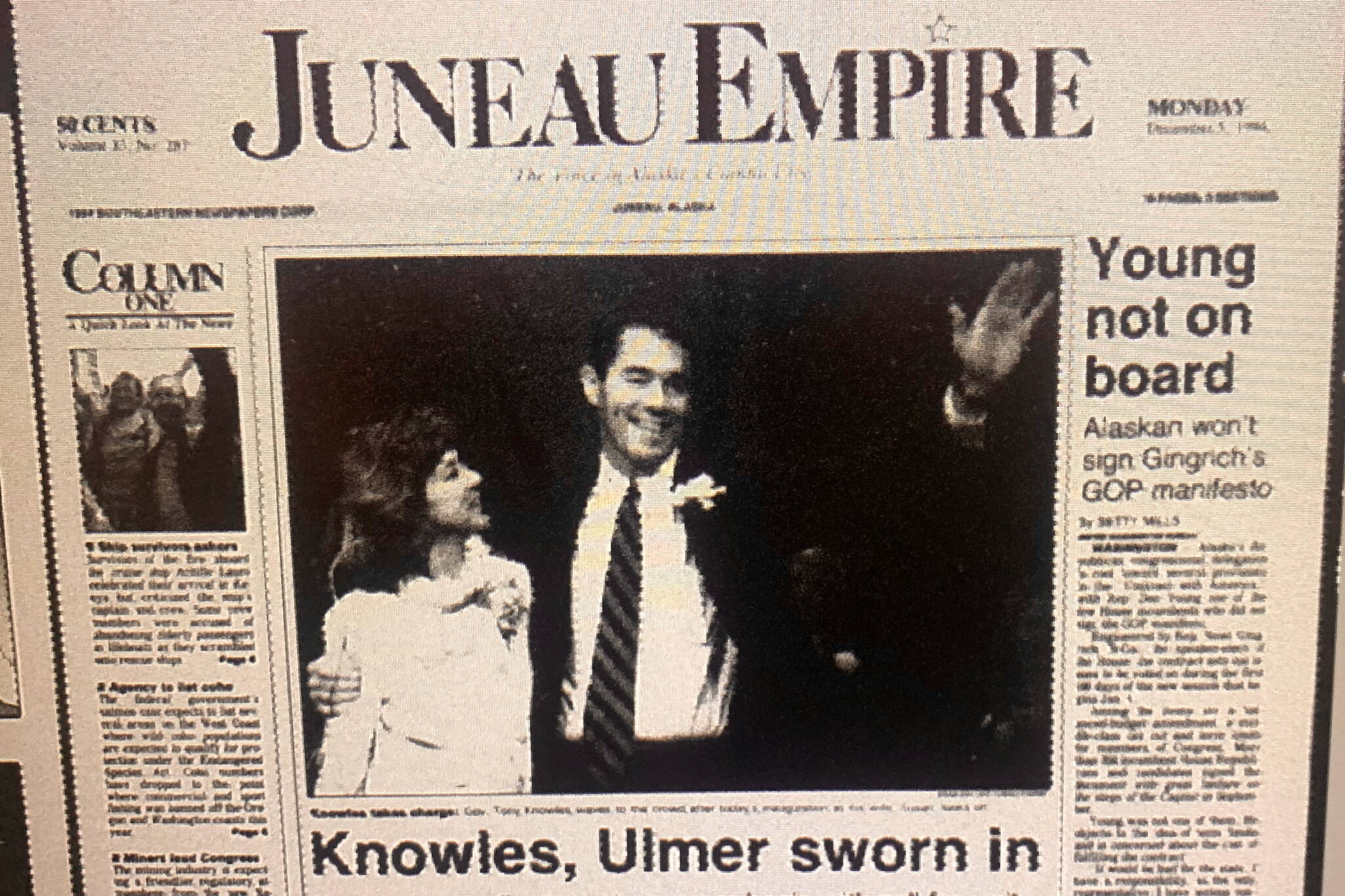Empire Archives is a series printed every Saturday featuring a short compilation of headline stories in the Juneau Empire from archived editions in 1984, 1994 and 2004.
This week in 1984, skiers at Eaglecrest Ski Area won’t be able to buy beer or wine at the lodge if an assembly committee’s recommendation to deny the concessionaire a liquor license is upheld. The Juneau City-Borough Assembly’s Health, Education and Social Services Committee on Wednesday voted 4-0 to recommend the city oppose granting a liquor license to Sheffield Enterprises. The city last spring awarded Sheffield a two-year contract to provide concession service at the enlarged lodge. The recommendation opposing the license will go before the full assembly on Dec. 17. Assemblyman Bruce Botelho, chair of the committee, said this morning the panel voted against the license for several reasons, a key being concerns that alcohol sales could contribute to an increase in accidents on the Eaglecrest access road.
Subsequently the Juneau Assembly in 2017 approved an ordinance allowing Eaglecrest to sell alcohol, but the state Alcohol Beverage Control Board denied an application for the ski area in 2018 even though other ski resorts in the state were selling alcohol. The Alaska Legislature passed an alcohol license bill in 2019 signed by Gov. Mike Dunleavy that included a provision allowing Eaglecrest to be included in the recreational alcohol license category.
Original Story: “Panel rejects bid for ski area liquor license,” by Chuck Kleeschulte. 12/6/1984.
This week in 1994, Alaska’s Republican congressional delegation is cool toward several provisions in the “Contract with America,” with Rep. Don Young one of the few House incumbents who did not sign the GOP manifesto. Engineered by Rep. Newt Gingrich, R-Ga., the speaker-elect of the House, the contract sets out issues to be voted on during the first 100 days of the new session that begins Jan. 4. Among the items are a balanced-budget amendment, a middle-class tax cut and term limits for members of Congress. More than 350 House Republicans and candidates signed the document with great fanfare on the steps of the Capitol in September. Young said he objects to term limits and is concerned about the cost of fulfilling the contract. “It would be bad for the state. I have a responsibility, as the only representative. I have serious concerns about whether we can pay for it,” he said.
Today, in a reversal of that situation, Rep.-elect Nick Begich has expressed support for the Freedom Caucus, generally considered the most conservative bloc in the House, which has expressed goals largely in line with supporting President-elect Donald Trump’s agenda.
Original Story: “Young not on board,” by Betty Mills. 12/5/1994.
This week in 2004, Alaska attorneys will ask the U.S. Supreme Court on Jan. 10 to force the federal government to relinquish ownership of Southeast Alaska’s submerged marine lands – including Glacier Bay. State attorneys say the case, Alaska v. United States, is the largest of its kind in U.S. history. A verdict is expected by June 2005. Though it doesn’t have the high stakes of a multimillion-dollar off-shore oil dispute, the case is a big deal for Alaska commercial and subsistence fishermen. It also will be a benchmark in the historic struggle for state sovereignty. “It’s part of that ancient battle of who owns the land in Alaska,” said Avrum Gross, a former state attorney general who fought the federal government in suits over oil and gas-laden marine deposits in the Beaufort Sea and Cook Inlet. But some environmentalists fear if Alaska gains control over Glacier Bay, it could ultimately harm its unique ecosystem and endangered species. Gov. Frank Murkowski has lobbied the National Park Service to increase cruise ship traffic in the bay, where large ships are now restricted to two per day.
Today, after the Supreme Court ruled the federal government owned the disputed submerged lands, the issue has arisen again locally with Gov. Mike Dunleavy filing a lawsuit that would effectively allow the state to seize control of Mendenhall Lake and Mendenhall River from the federal government which, among other things, would remove restrictions on motorized vessels on the lake. The lawsuit filed in 2022 remains in the pre-trial stages.
Original Story: “High court to weigh Alaska marine lands case,” by Elizabeth Bluemink. 12/5/2004.
• Contact Mark Sabbatini at mark.sabbatini@juneauempire.com or (907) 957-2306.

